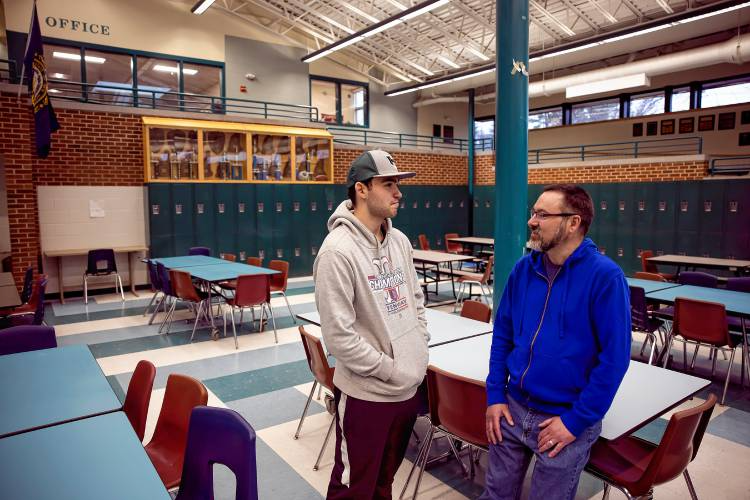As of Tuesday, the coronavirus (COVID-19) pandemic has claimed 44,575 lives in the United States and infected 802,583 according to the CDC. On the front lines of the fight against the deadly virus are healthcare workers. Doctors, nurses, health care professionals, and support staff are working long hours to try to combat the spread of COVID-19 and to save the lives of those infected.
Ariel Stickney is a supervising nurse in the medical Intensive Care Unit at Dartmouth Hitchcock Medical Center in Lebanon NH. Stickney runs a team of over 20 nurses taking care of all 26 COVID-19 patients at Dartmouth Hitchcock, 12 of whom are on ventilators. The pandemic has seen hospitals reshuffling the work of their staff. “All the administrative work that I was doing before I now no longer do,” she said. “They’ve told us that we can only do clinical work for now just because the need is so high for people actually on the floor caring for patients.”
Medical supplies and proper personal protective equipment (PPE) have become highly demanded around the country. Stickney said she gets around 20 phone calls an hour dealing with supply chains and getting her nurses the PPE needed to safely care for COVID-19 patients. “There are tons of logistics that we never needed to even think about before and it’s like every single day is navigating something new that we didn’t even think of.” Stickney said she feels that Dartmouth has enough supplies and she isn’t overly concerned about running short.
In other states and hospitals, supply shortages are more prevalent. Ryan Dorin is a urologist at The Hospital of Central Connecticut. He is now preparing to help in the Emergency Room (ER) and Intensive Care Unit (ICU). The shortage of N95 masks has forced medical workers to reuse them for weeks at a time. Dorin said he has been instructed to put his in the oven at 130 degrees after exposure to a COVID-19 patient. “Keep [the N95 mask] in a paper bag, keep it clean and reuse it pretty much as long as you possibly can because of limited supplies.”
Specialist doctors like Dorin are now being asked to aid in the care of and treatment of COVID-19 patients. Dr. Sean O’Connor is an orthopedic surgeon in Concord, NH who said he is waiting to see if he’ll be needed for COVID-19 care. “That’s not on our usual day to day thing at all. I haven’t done that in 35 years. So that’s something I’d have to come up to speed with pretty quickly. But in New York, I know that orthopedic surgeons who barely know what to do with a stethoscope are… taking care of patients in the ER, in the ICU, just because other doctors have gotten sick and have had to leave.”
Mariella Sardella is a nurse practitioner at Concord Hospital who specializes in the administering of anesthesia during surgery. She has had to deal with a constraint of supplies starting in mid-March. “The administration was saying we had a week’s worth of protective equipment and then we’re out. So, we started rationing and then also in the meantime, they have been getting more supplies in.” To go along with fewer supplies Sardella has decided with her fellow nurses that they will have their pay and hours cut during the pandemic. “We get paid by giving anesthesia for surgeries. So, since we don’t have those surgeries going on right now, we get reimbursed a lot less. So, we all decided that. We would all take a 50% cut in pay and we would all work about halftime.”
Sardella said she worries about the emotional health of the nurses. She said the rearranging of schedules and cutting of hours and pay was very stressful. Adding to the stress is the task of setting up patients on ventilators. Sardella and many nurses who administer anesthesia are responsible for putting the patients on ventilators thus coming in close contact with the virus. “So that puts a lot of extra stress and pressure on us because we have to be concerned for our own safety.”
Stickney said that emotional stress is the hardest part of the pandemic. “We don’t allow visitors anymore, which has created a whole other level of distress for the patients, their families who still continue to call, our nurses who are morally distressed by the situation because their patients are very sick and they’re essentially dying and they’re alone. And we can’t risk our exposure being in the room as often as we’d like to be if families weren’t there.”




















